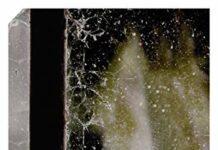
Ebook Info
- Published: 2010
- Number of pages: 144 pages
- Format: EPUB
- File Size: 0.85 MB
- Authors: Roland Barthes
Description
Camera Lucida, Roland Barthes’s personal, wide-ranging, and contemplative volume–and the last book he published–finds the author applying his influential perceptiveness and associative insight to the subject of photography.Commenting on artists such as Avedon, Clifford, Mapplethorpe, and Nadar, Barthes presents photography as being outside the codes of language or culture, acting on the body as much as on the mind, and rendering death and loss more acutely than any other medium. This groundbreaking approach established Camera Lucida as one of the most important books of theory on the subject, along with Susan Sontag’s On Photography.
User’s Reviews
Editorial Reviews: Review “[Barthes] has accomplished in this extraordinary book something finer than mere polemic. En route to his last painful discovery, Barthes takes the reader on an exquisitely rendered, lyrical journey into the heart of his own life and the medium he came to love, a medium that flirts constantly with the ‘intractable reality’ of the human condition.” ―Newsweek About the Author Roland Barthes (1915-1980) was a French cultural and literary critic, whose clever and lyrical writings on semiotics made structuralism one of the leading movements of the twentieth century. Barthes had a cult following and published seventeen books, including Camera Lucida, Mythologies, and A Lover’s Discourse.Richard Howard is a poet, scholar, teacher, critic, and translator. Paper Trail is published simultaneously by FSG with Howard’s Inner Voices: Selected Poems, 1963-2003. He teaches at Columbia University and is poetry editor of The Paris Review.
Reviews from Amazon users which were colected at the time this book was published on the website:
⭐Every photographer should read this book.
⭐Camera Lucida provides a moving and insightful tribute to the author’s mother. However, to my mind, the thinking about photography is rather less valuable.Barthes begins by announcing that the subject compels him to dispense with the compulsion to theorizing that seems endemic to French academic writing. A promising and welcome beginning. But Theory keeps intruding, in the form of jargon (the distinction between Operator, Spectator and Spectrum, which is pretty much dropped shortly after being introduced), various dichotomies (which tend to be introduced for the primary purpose of being subverted), the generation of paradoxes, and the usual rather melodramatic “last word” concerning the inexpressible, the ineffable, and of course Death. Despite his promise to utilize as data his own personal experience of photographs in order to reach the essence of “Photography” [sic], Barthes never manages to get beyond the framework of “representation”, “likeness” and “referent”, all concepts (dating back to Barthes’ early work in semiology) that tend to obfuscate rather than reveal how photographs present themselves to our minds. For the first thing to notice about a photograph is that it does not provide a “likeness” of a thing but rather the thing itself, the difference being that in the photograph the thing doesn’t exist (here, now). In other words, the theoretical apparatus surrounding the concept of representation is inherently inadequate to understand what a photograph is, but Barthes relies on it (even if in a negative mode) from start to finish. Also annoying is the preciosity of the writing (its delight in its look and sound, suggesting an aesthete rather than a thinker), and the (again) characteristic striving for brilliance for its own sake. It’s easier to appear brilliant when obfuscating than when enlightening, because philosophical and aesthetic truth is discovered not when we learn something new (via fresh information or neologisms) but rather when we are able to recall something we already know, but for some reason are unable to acknowledge. For these reasons, I find Barthes’ reflections on photography to be at times very interesting and subtle but of limited value.
⭐Fast shipping. Excellent condition. Best price ever. Will order again.
⭐I got this book for an Art History class (History of Photography). I gave myself exactly one week to read this book. It wasn’t enough time; this book is incredibly complex for Undergraduate reading. I had to reread the book several times, but thanks to my teacher, TA and fellow students, we managed to break it down and begin actually seeing what Barthes is saying. He wrote this book as an essay not necessarily to teach but more so to explain why he was attracted to photos more than others while looking for his perfect photo of his recently deceased mother. The first part of the book breaks down and explains the different parts of photography. The most important term to remember is punctum (and studium which goes with it) and enimos, or essence. The Second part breaks down his discovery of the Winter Garden photo (which is never seen in the book) and why he is attracted to it, or other words, he uses the terms from Part One to explain the photo.As a student I highly dislike this book because of its difficult reading, but as an Art Historian, I find it incredibly useful, especially for any students planning on going into Contemporary art, which is highly dominated by the field of photography.
⭐It’s a good read but the second part seemed too subjective for me. It almost seemed to me that he rushed it and that given another circumstance, his ideas would have resonated better.
⭐I like reading Barthes essays on various aspects of society. This book is a little slow going in the beginning but does get better as it goes. It is not for the reader with a casual interest in photography but for someone who is interested in understanding the deeper issues that lay in photography and what it means to photograph and be photographed.
⭐By production values I mean the beauty of the physical form of this book itself. Between the lovely covers, I can quickly sum up the contents as follows: much ado about nothing. Barthes’s singular contribution to photography, as I understand it, is the introduction of two unnecessarily complex concepts, both scantily clothed in Latin, both confused and confusing: the first, the studium, the formal contents of a photograph such as the circumstances it describes and the grammar through which it communicates; the second, the punctum, interesting things which poke out at the viewer. He describes the things that seize his eye when he looks at a small number of photographs – a shoe, a necklace, the tilt of a gaze – but doesn’t delve deep enough to explain why these elements are important at all. The sense one gets as one goes through the book is that these punctum are arbitrary, idiosyncratic, and entirely inexplicable. When I picked this book up, I expected some guidelines, insights perhaps, into why photography is still today a powerful medium. What I got instead, was a book on mysticism.
⭐An interesting book, not something that I would have read had it not been required. Nonetheless Barthes raises many interesting points and I am sure that for someone involved in photography it would be a much more engaging read. Even for me it proved palatable.
⭐Get ready to hit the dictionary because this book is full of complicated words! Other than that, it’s a fantastic book. I used part 1 as a link to my essay and now I’ve decided to read part 2 and my mind is blown away. I feel the book allowed me to grow my knowledge and understanding about photography, portraits mainly. The way Barthes talks about his mother is beautiful, some pages moved me to tears! Recommend to anyone who wants to open their mind to the philosophical things of photography. But be warned, it’s a difficult read, some pages are confusing as hell, but totally worth it when you keep an open mind.
⭐For anyone deciding whether to buy this or not, aparently it’s supposed to be a mandatory read for amateur photographers and above (according to my lecturer!) The langauge is very complicated, more complicated than Shakespeare I would say as I can’t even understand a word of it, however if you have a passion, indepth knowledge & understanding of photography and the langauge I would reccomend this.
⭐Good condition, a few scratches you cant really see, the amount you would expect to find in a book shop. Great price too.
⭐This book is a classic. Every scholar/student of photography should have this book on their bookshelves.
⭐Book came fast, which was good as I needed it for university.Now I read it to help me sleep due to the long and complex words within!
Keywords
Free Download Camera Lucida: Reflections on Photography in EPUB format
Camera Lucida: Reflections on Photography EPUB Free Download
Download Camera Lucida: Reflections on Photography 2010 EPUB Free
Camera Lucida: Reflections on Photography 2010 EPUB Free Download
Download Camera Lucida: Reflections on Photography EPUB
Free Download Ebook Camera Lucida: Reflections on Photography

